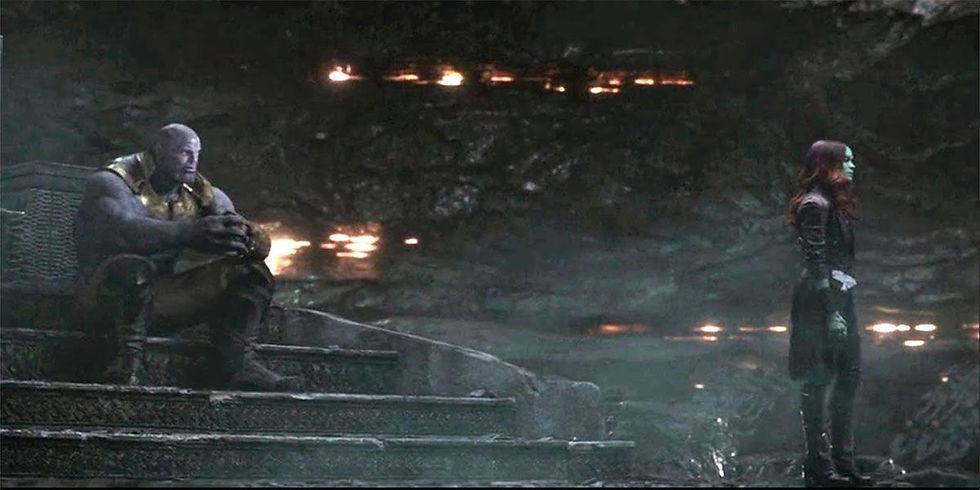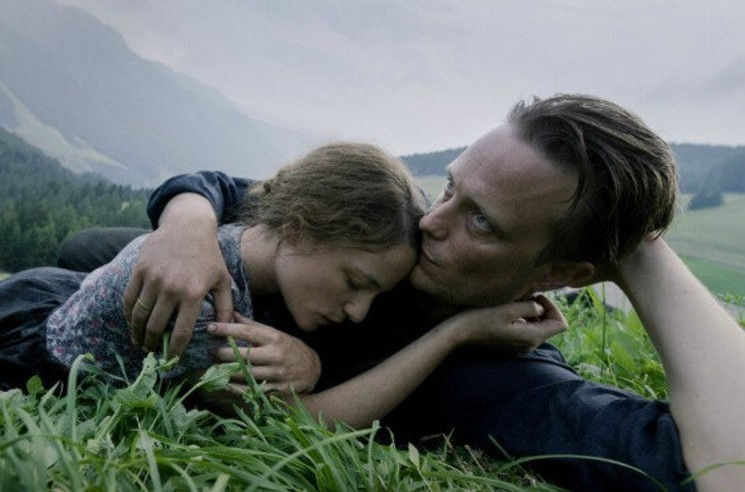Interview With Meadowland Writer, Chris Rossi
- Fr. Don Woznicki
- Oct 23, 2015
- 5 min read

I found Meadowland to be quite gripping with spiritual undertones - an important film to make. I was grateful to have a recent opportunity to speak with it’s writer, Chris Rossi and so pleased to find out that he is a product of Catholic Schools from Ithaca, NY (Immaculate Conception Elementary and a Jesuit High School). Chris’ upbringing is quite evident in this story which balances a strong human element with the transcendent, spiritual sense. Hollywood needs more Chris Rossi scripts in circulation!
FR. DON: This is quite a film that you triggered here with your script - I see that in 2012, you were selected to The Young and Hungry List of the industry's top new screenwriters. How ever did you get from Immaculate Conception in Ithaca, NY to Hollywood?
ROSSI: After High School, I became an English Major at Cornell, started acting in productions there, then moved to New York City to pursue acting. There, I became involved with a Theater Company and did Voice Overs. Eventually I moved to LA and entered a Film Independent Lab where I did rewrites and worked on my own scripts. Eventually I got an Agent and Manager for my story Day 38 which got sold to a major studio.
FR. DON: Why was this story of loss, sorrow, and grief worth telling? (For whom did you write Meadowland for)?
ROSSI: Good question. Many of these types of stories focus on a father’s vengeance or the police trying to solve the case. I wanted to look at the sorrow and grief of loss from a different angle – that of a mother. I wanted to focus on the mother’s journey in dealing with loss – A journey that begins in an existential realm and leads to a spiritual journey. I want the viewer to find solidarity in loss with the character (Sarah). I also want the film to create or reignite empathy in people.
FR. DON: Why is it important to reignite empathy?
ROSSI: Because with all the pain and suffering and sorrow that we see going on in the world through the news – almost daily, such as the Syria Refugees (Shootings on college campuses or theaters), people can become tired of caring – or what I call “compassion fatigue.”
[I found this answer above by Chris Rossi to be quite interesting. The story sets out to recapture the human person’s ability and need to experience authentic compassion and find solidarity with the suffering going on around them. This value in the story is commendable and quite profound because it relates to values in the gospel called “Works of Mercy” and one of Jesus’ “beatitudes” (blessings) that he delivered from the Sermon on the Mount, “Blessed are those who mourn; for they will be comforted” [Matt. 5]. It keeps us human and spiritual alive!]
FR. DON: How did you get your script into consideration and finally picked up and teamed with Reed Morano and Olivia Wilde? What attracted Reed to your script?
ROSSI: At first my Agent and Manager thought the story was too dark for anyone to pick it up and place into production. But I knew it would get picked up by a mother. Friend and Writer and Producer Matt Tauber (The Architect) also knew Reed Morano and connected her with the script. Reed was interested in part because of the grief she felt over the loss of her father and in part because she is a mother herself with an adolescent boy, Casey (who played the son of Phil and Sarah in the film). Eventually Olivia got ahold of the script and was drawn in to it by the nature of the story and that it provided a challenging, rare and central role for an actress over 30.
FR. DON: Kudos to Olivia for taking this important role! But as a chaplain to screenwriters (with Act One), I am always partial to the writer for not getting the credit due to them…for it is a hard process of “giving birth” to an idea and placing it on paper…But did others influence this script? How were you able to empathize with the character Sarah? There were Some dark experiences portrayed with Sarah, such as the “cutting” scene. In my experience, as a priest and in pastoral counseling, I find that “cutting” tends to be more something a woman (usually a young lady) in emotional pain turns to – and it would seem only a woman would best be able to describe and portray the feeing on why someone would “cut.” Is this one area Reed or Olivia influenced your script? Were there any other areas in the script Reed or Olivia had an influence?
ROSSI: All in film was in the original script, such as the cutting. However, Reed did recommend taking out a character as an FBI Agent and focus more on the couples. It was a great choice. The ending with the elephant was also crafted by Reed. It is a visual metaphor as Sarah gets up close to touch the elephant (face-face… to see deep into the eyes of the elephant. The elephant serves as a moment of grace that shines through into Sarah’s life. For Sarah, a moment of re-enchantment with life.
FR. DON: [Indeed, God's grace will find various ways to reach a drifitng soul] How has your Jesuit Catholic upbringing influenced your craft as a writer?
ROSSI: I believe its in my DNA! My thoughts on story-telling do go back to the days as a kid and young man. I remember the impact the scenes of the Station of the Cross had on me. How powerful it is in conveying a story of suffering and sacrifice. I have been quite enamored too by the French Filmmaker, Robert Bresson who was also influenced by his Catholic upbringing.
[Bresson (1901-1999) was one of the great film artists of the century. The spectator who surrenders him or herself to Bresson's work is not likely to remain unaffected by the intensity of the emotions conveyed, the formal rigor and seriousness, or the deep commitment of the filmmaker to his conceptions. Bresson was a deeply devout man who attempted in a relatively timeless manner to address Good and Evil, redemption, the power of love and self-sacrifice and other spiritual problems].
FR. DON: What is your Passion...What mark would you like to ultimately leave on the industry and the world as a writer? Anything else in the works?
ROSSI/My next project is called Lives of the Saints (Meg Ryan, 50 Cent). It's an ensemble in LA of 5 people with different backgrounds who have done something in the past but are somehow connected with each other in the present. It's a film about redemption and forgiveness but also that in the real world things do not always work out - And that sometimes our answer from God to prayer is No... I ultimatley I want to tell stories with a spiritual dimension about real people, not super-heroes. The people on the “margin” who do not get movies made about them.The poor and the under-class.
(FR. DON) Chris, you sound like Pope Francis – a true Jesuit!
God bless you Chris and my prayers are with you and your work and especially your
family. Thank you for taking this valuable time with me!



























Commentaires